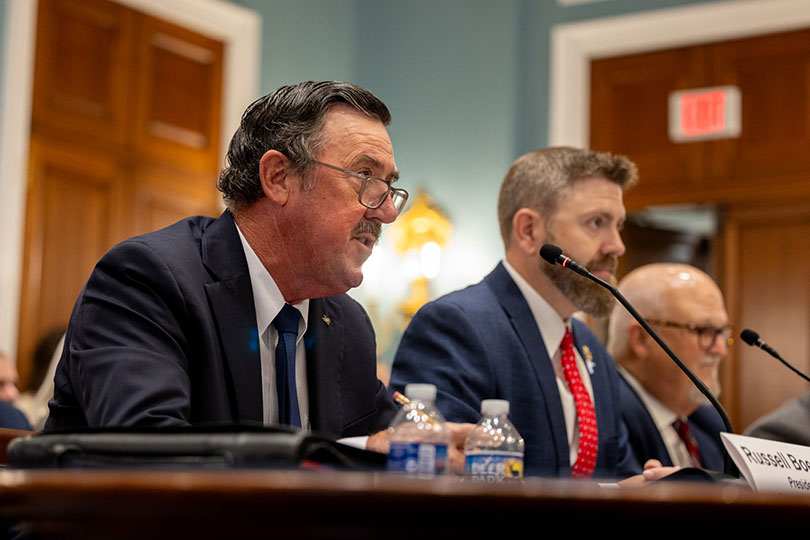By Julie Tomascik
Editor
Voluntary conservation practices help farmers and ranchers better steward the land and should remain in the next farm bill, Texas Farm Bureau President Russell Boening told a Congressional subcommittee this week.
“Voluntary conservation practices have become a cornerstone of modern agricultural operations,” Boening said. “Our family implements conservation practices to improve water quality, soil health and wildlife habitat while keeping our land productive. We are not unique. Farmers across Texas and the country are seizing the opportunity to utilize conservation programs.”
Boening testified Thursday, June 5, before the U.S. House Agriculture Subcommittee on Conservation, Research and Biotechnology, helping lawmakers understand how conservation efforts drive sustainability and why continued support is essential.
From planting cover crops and rotating livestock to restoring native grasses and managing water use more efficiently, farmers and ranchers are using science-based strategies to protect natural resources without sacrificing yields.
Programs like the Environmental Quality Incentives Program (EQIP), Conservation Stewardship Program and the Regional Conservation Partnership Program have helped farmers execute these on-farm conservation practices.
But continued success, Boening said, requires Congressional support and practical improvements.
“All of these programs have become increasingly oversubscribed, with demand consistently surpassing available funding,” Boening said. “The greatest challenge for producers is gaining entry. For Texans, EQIP is of utmost importance given the 50% set aside for livestock operations.”
He urged the subcommittee to increase funding and raise payment rates so that implementing conservation practices is more financially feasible. He emphasized the need to simplify application processes and reduce paperwork burdens.
Boening also called for more flexibility in program design and expanded technical assistance, noting that many farmers struggle to access help due to agency staffing shortages.
“Farmers often express concern about the shortage of technical service providers available to assist with conservation practices, as this lack of support can delay or limit their ability to implement these programs,” Boening said.
The shortage is especially challenging in rural or underserved areas, where access to trained professionals is already limited. Boening noted expanding and better supporting the trained service professionals is essential to ensure farmers can navigate the programs and achieve conservation goals.
“We challenge members of this subcommittee to work toward reauthorizing the farm bill to ensure that farmers have access to conservation programs that promote environmental stewardship,” Boening said.


Leave A Comment